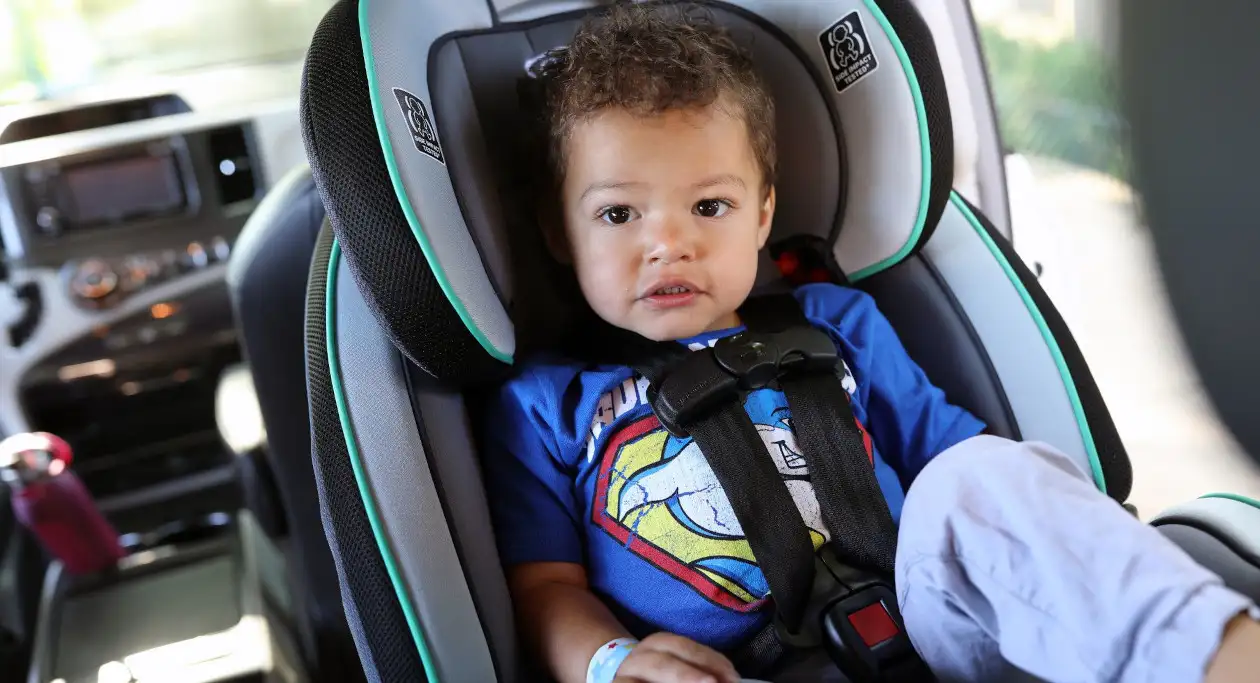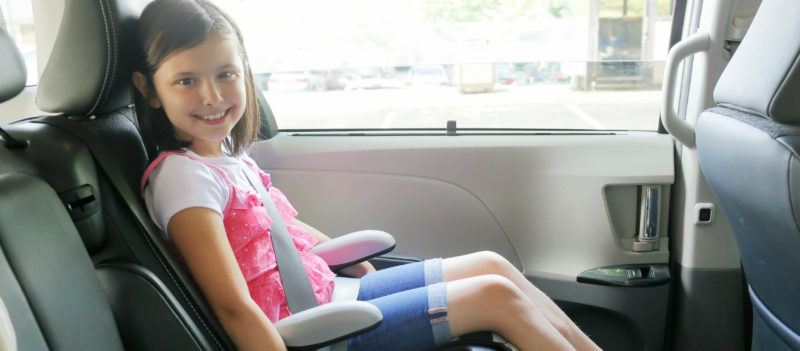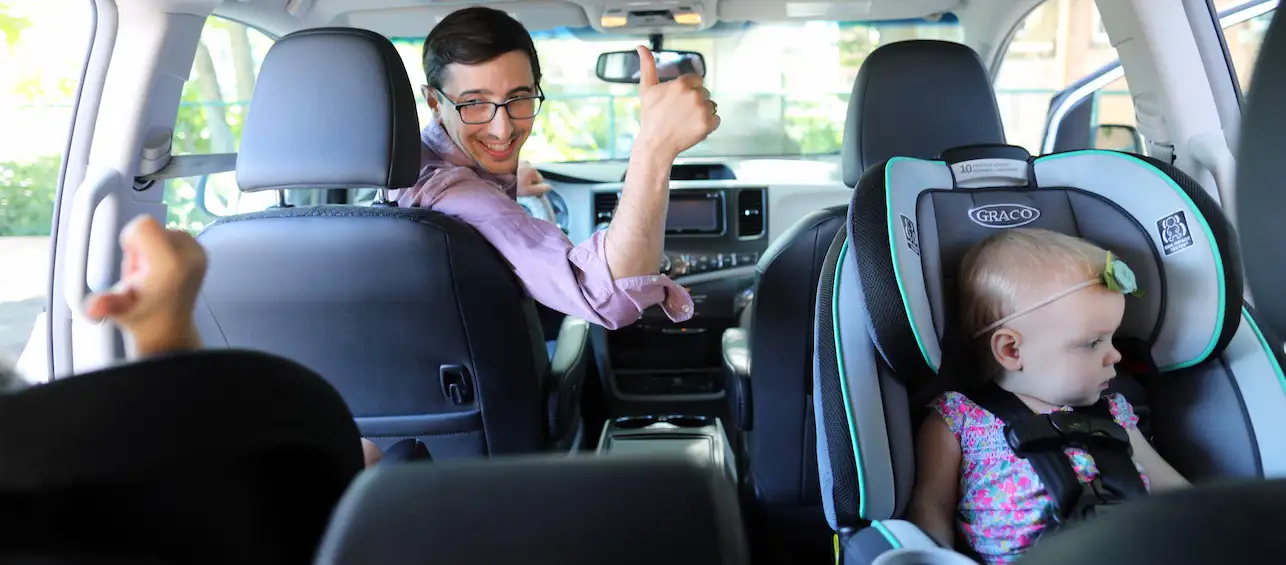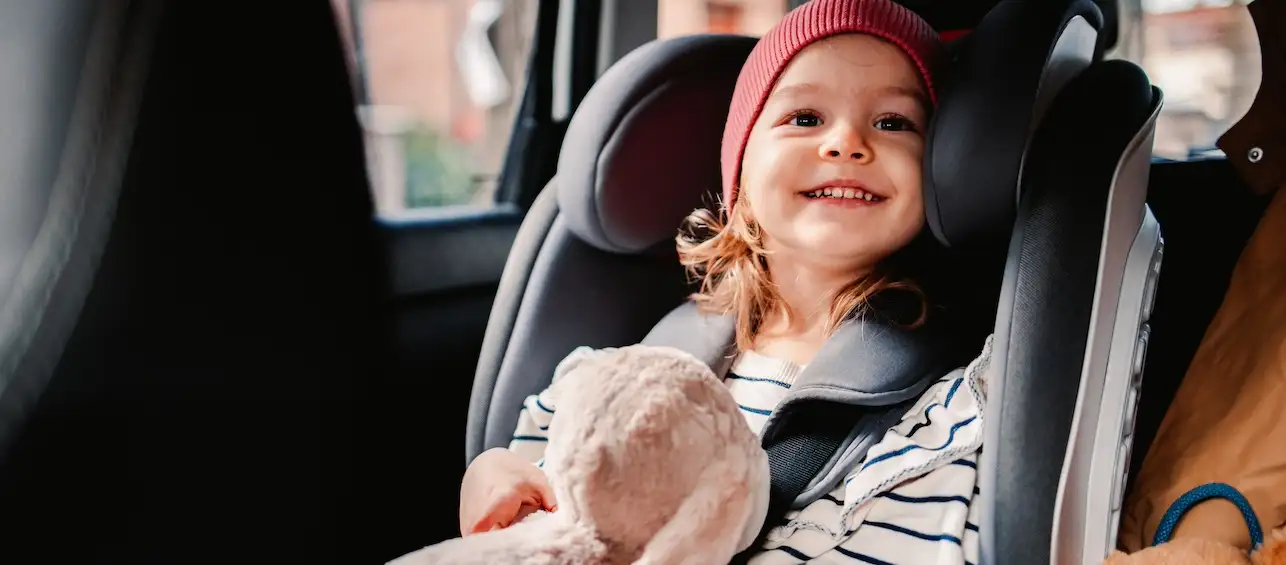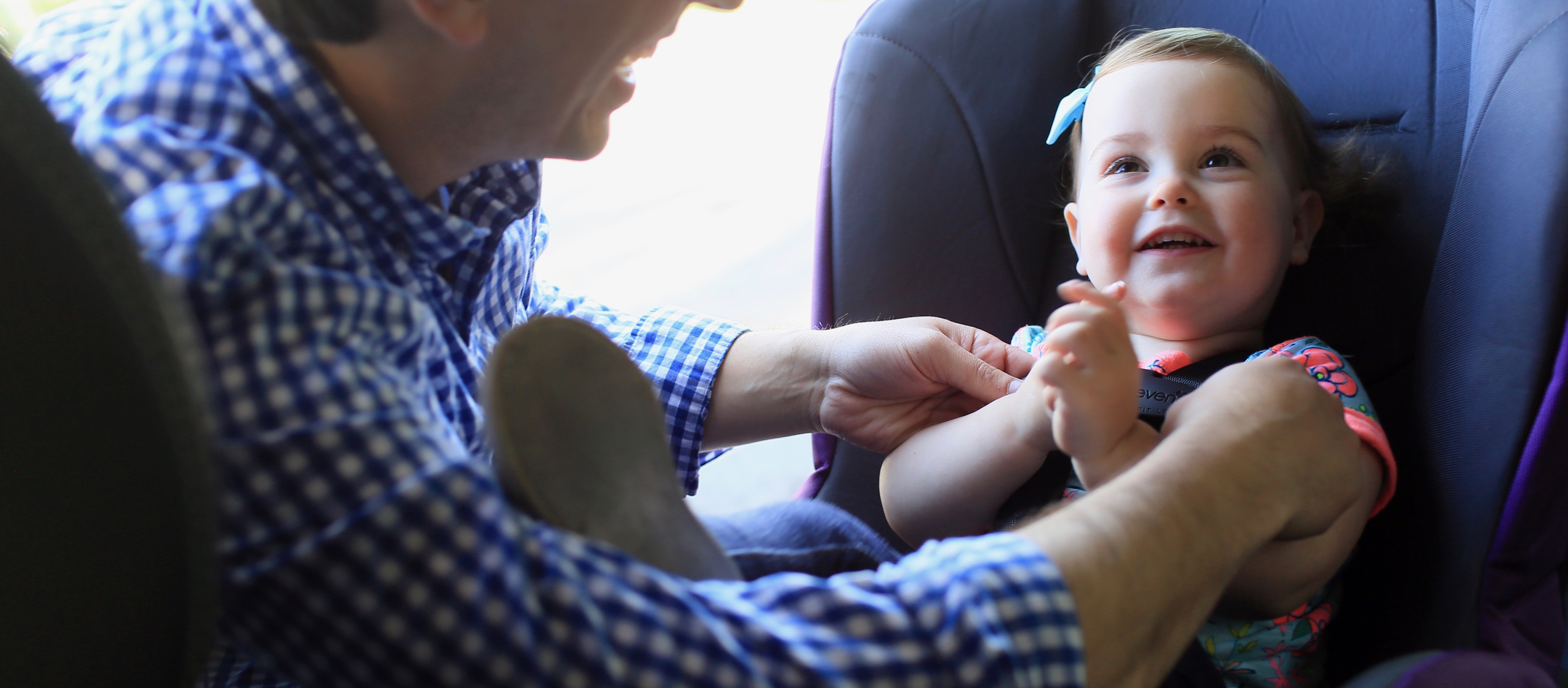Parents purchase many safety items for their kids in the early years, such as a crib, cabinet locks and baby gates. At the top of that list is car seats, as they are needed through most of elementary school.
If you’re currently in the market for a car seat, or you’ve just purchased one, I’d like to warn you about a concerning trend: counterfeit or uncertified car seats. They may look like the real thing, especially in pictures online; but when evaluated in person, they are made with inferior materials that make them unsafe.
Here’s how to evaluate a car seat to avoid purchasing a counterfeit one:
How to Avoid Purchasing a Counterfeit Car Seat
1. Inspect for design flaws.
Federally regulated car seats manufactured in the United States for infants and toddlers are required to have a chest clip. This provides a five-point harness necessary to keep the straps over their shoulders and hips. If the car seat is missing a chest clip, it is a knock-off. Also, some fake car seats will be made with flimsy plastics; so much so that the seat can be bent.
2. Look for labels.
The most important label to look for is the one that states, This child restraint system conforms to all applicable Federal Motor Vehicle Safety Standards. This means that the car seat is federally compliant. There is also labeling with specific height and weight requirements. Fake car seats may have labels with grammatical errors or be missing them altogether.
3. Check for paperwork.
Federally regulated car seats will include a registration card (see below) and safety manual. If these items are missing, it is likely fake.
4. Register it.
Like many child safety products, authentic car seats come with a unique serial number. We have heard of some fake car seat manufacturers using false numbers or previously registered numbers. If you have already purchased a car seat, register it with the National Highway Traffic Safety Administration (NHTSA). The website will confirm or not confirm the number. An unconfirmed number means it is likely counterfeit. You’ll also receive important recall information once registered.
5. Purchase brand names.
The best way to avoid purchasing a fake car seat is to go to a store and inspect it for the above features. You will find name brand car seats in brick-and-mortar stores and can use the information to buy and ship directly from the manufacturer, if you still want to purchase online. I would, however, steer clear of purchasing from a third party. They may be selling car seats with unfamiliar names, or faulty car seats using well-known car seat manufacturers.
If you have concerns about your car seat, you can always take it to a car seat safety technician to have it evaluated. If you find that you have already purchased a fake car seat, stop using it immediately. I recommend trying to return the item and then notifying the retailer that it is a counterfeit. If they will not accept the return, or if they refund it but don’t want the item back, please throw it away.

